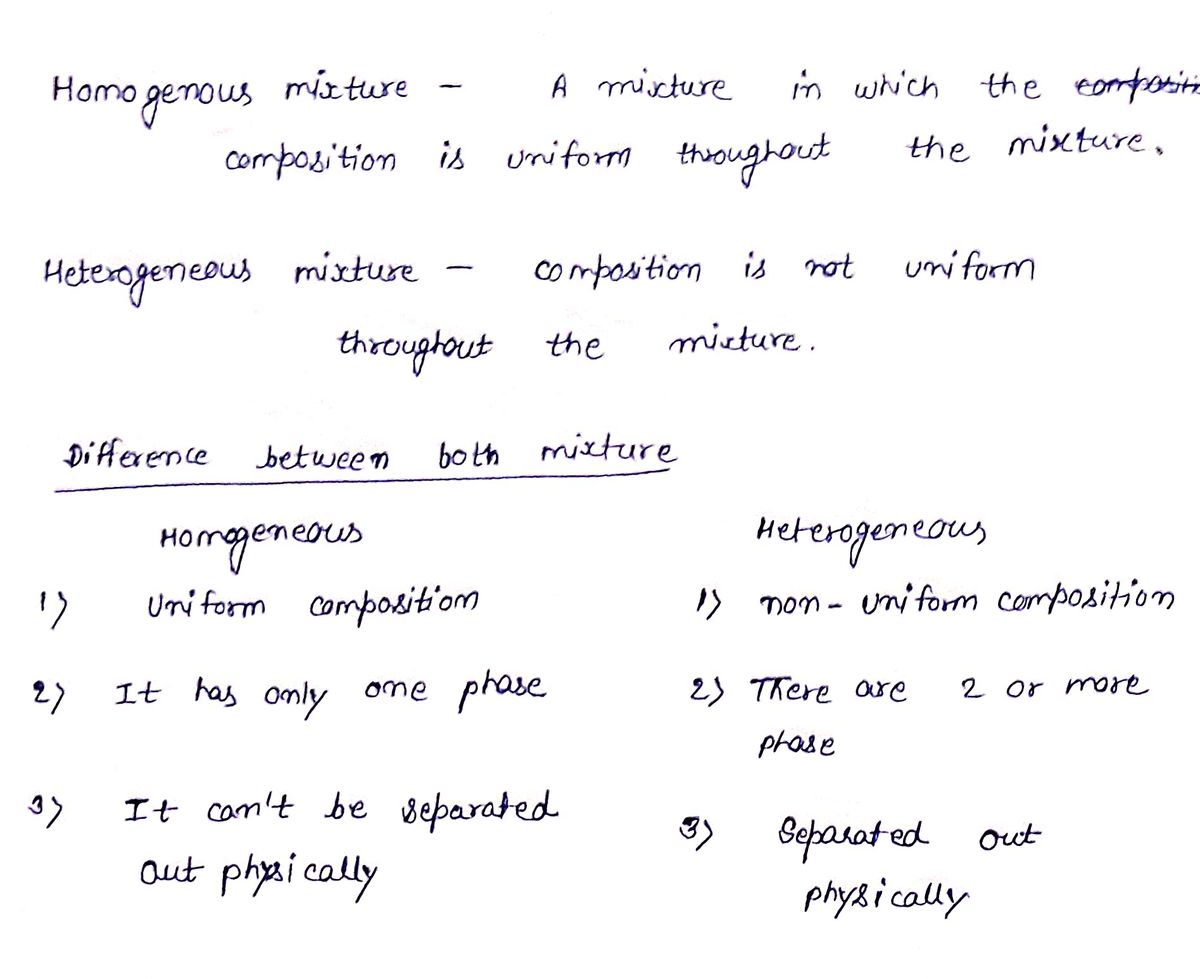The difference between heterogeneous and homogeneous mixtures is the degree to which the materials are mixed together and the uniformity of their composition
States of Matter
The substance that constitutes everything in the universe is known as matter. Matter comprises atoms which in turn are composed of electrons, protons, and neutrons. Different atoms combine together to give rise to molecules that act as a foundation for all kinds of substances. There are five states of matter based on their energies of attraction, namely solid, liquid, gases, plasma, and BEC (Bose-Einstein condensates).
Chemical Reactions and Equations
When a chemical species is transformed into another chemical species it is said to have undergone a chemical reaction. It consists of breaking existing bonds and forming new bonds by changing the position of electrons. These reactions are best explained using a chemical equation.
I have chosen to discuss the terms heterogeneous and homogeneous for this week's discussion. I have some familiarity with these two words and most of my familiarity is in terms of cooking. There are a lot of examples of heterogeneous and homogeneous mixtures in the kitchen. A heterogenous mixture is one made up of multiple individual components, like a chocolate chip cookie or a bowl of cereal and milk. While the ingredients are blended together, they are still visibly separate. A homogeneous mixture is one that blends to the point of no individual components being visible. An example of this could be simple syrup or a pitcher of sweet tea or lemonade. The terms heterogeneous and homogeneous refer to mixtures of materials in chemistry. The difference between heterogeneous and homogeneous mixtures is the degree to which the materials are mixed together and the uniformity of their composition….just like as in the everyday usage of these terms. I feel like the similarities in the usage of this term in everyday and chemical usage will make it easy to remember what these terms mean and how to use them.
What do you think about this?

Step by step
Solved in 2 steps with 2 images









